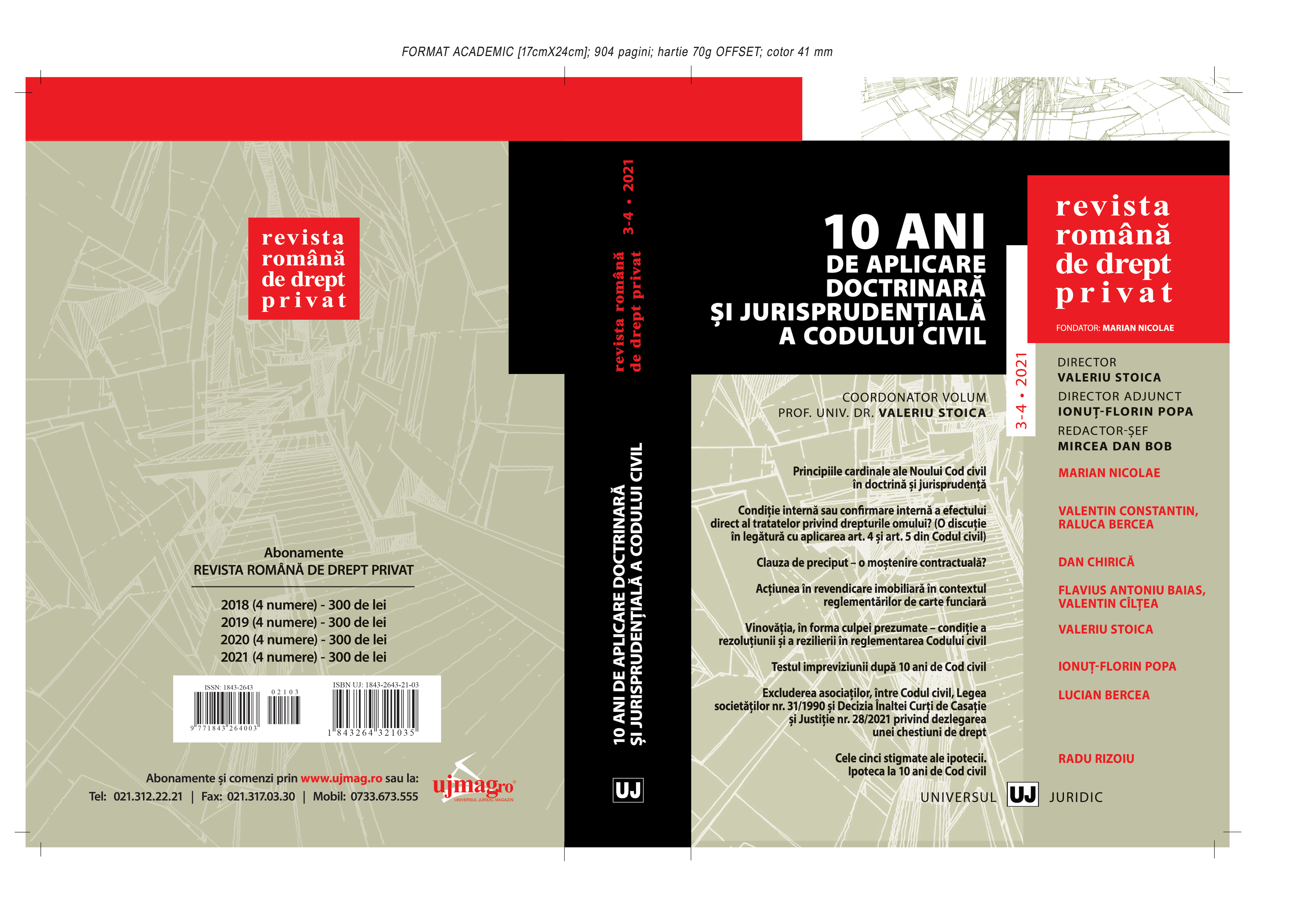Impactul Convenţiei ONU privind drepturile persoanelor cu dizabilităţi asupra căsătoriei (în perspectiva modificării Codului civil)
The impact of the UN Convention on the Rights of Persons with Disabilities on marriage (with a view to amending the Civil Code)
Author(s): Marieta AvramSubject(s): Law, Constitution, Jurisprudence, Civil Law
Published by: Universul Juridic
Keywords: marriage; mentally alienated and mentally retarded; capacity; discernment; nullity; consent; equality; discrimination; guardianship; guardianship; vulnerable adult; mentally disabled person;
Summary/Abstract: Almost 10 years after the entry into force of the Civil Code (1 October 2011), there were no signs of deep tectonic shifts in the area of persons that could shake the regulation of traditional institutions. However, following the unpredictable Decision No 601/2020, by which the Constitutional Court found unconstitutional Article 164 para. (1) of the Civil Code, the legislator is obliged to carry out a wide-ranging reform of the regulation on the legal protection of adults with mental disabilities. The old institution of guardianship, as a substitute measure of protection, applicable in the case of the mentally alienated and the mentally retarded has proved inadequate to the requirements of the UN Convention on the Rights of Persons with Disabilities. But the impact of this Convention does not stop at Book I of the Civil Code. Book II, “On the Family”, is equally targeted. The impediment to marriage consisting of mental alienation and mental debility, provided for in Article 276 of the Civil Code. (previously Art. 9 C. fam.), appears to be a special discriminatory incapacity, given that Article 23(1)(a) of the Convention proclaims the recognition of the right of all persons with disabilities who are of marriageable age to found a family on the basis of the free and full consent of the future spouses. This study aims to examine the controversial issue of marriage for people with intellectual disabilities: can these people enter into a marriage? under what conditions? what penalties apply if the marriage is not based on the full and free consent of the future spouses? Also, with a view to the wide-ranging amendment of the Civil Code, the solutions for the conclusion of marriage contained in the draft law drawn up by the Ministry of Justice are analysed, and some proposals are made to improve the legislative vision and texts.
Journal: Revista Română de Drept Privat
- Issue Year: 2021
- Issue No: 3-4
- Page Range: 234-261
- Page Count: 28
- Language: Romanian
- Content File-PDF

